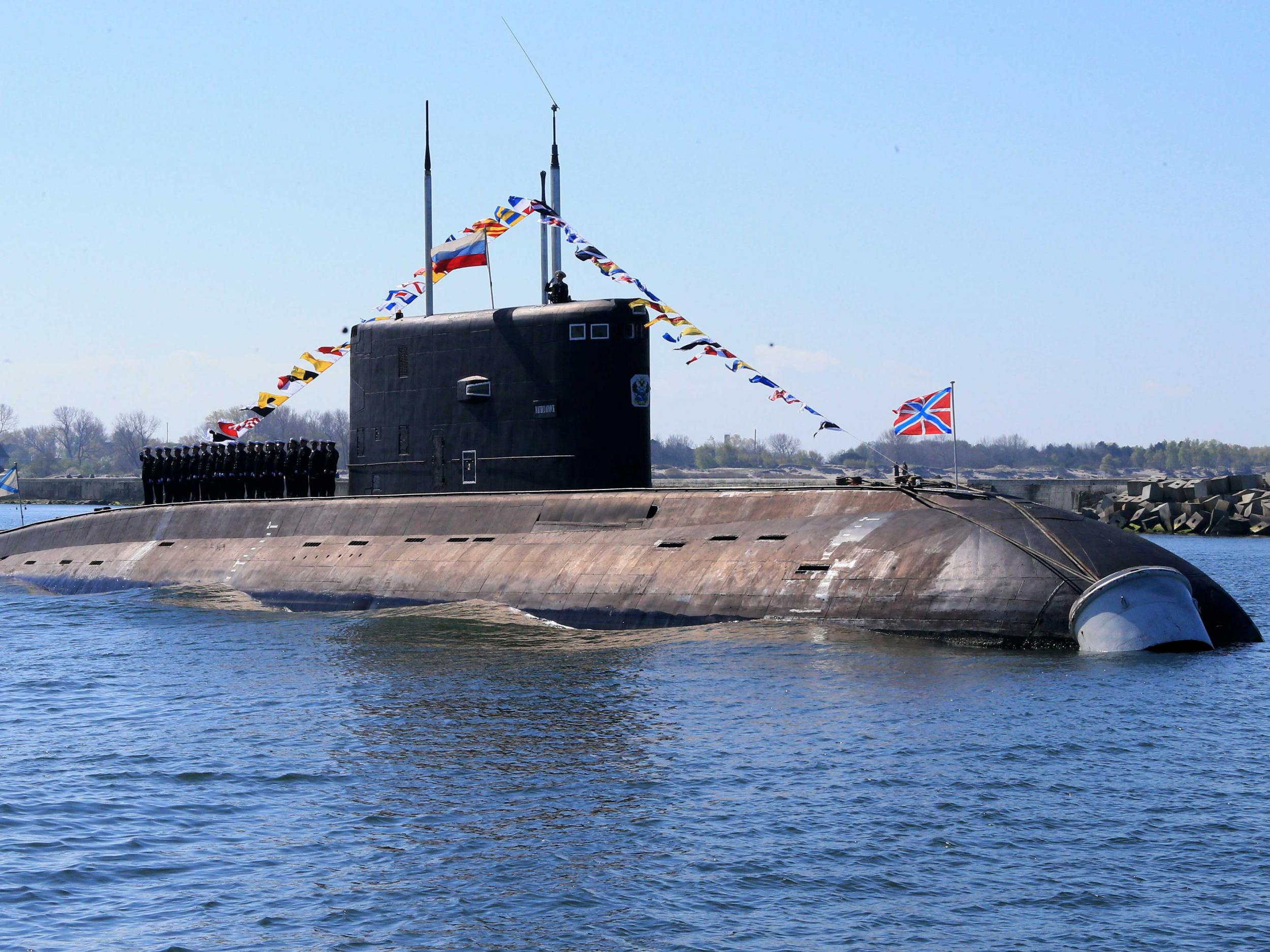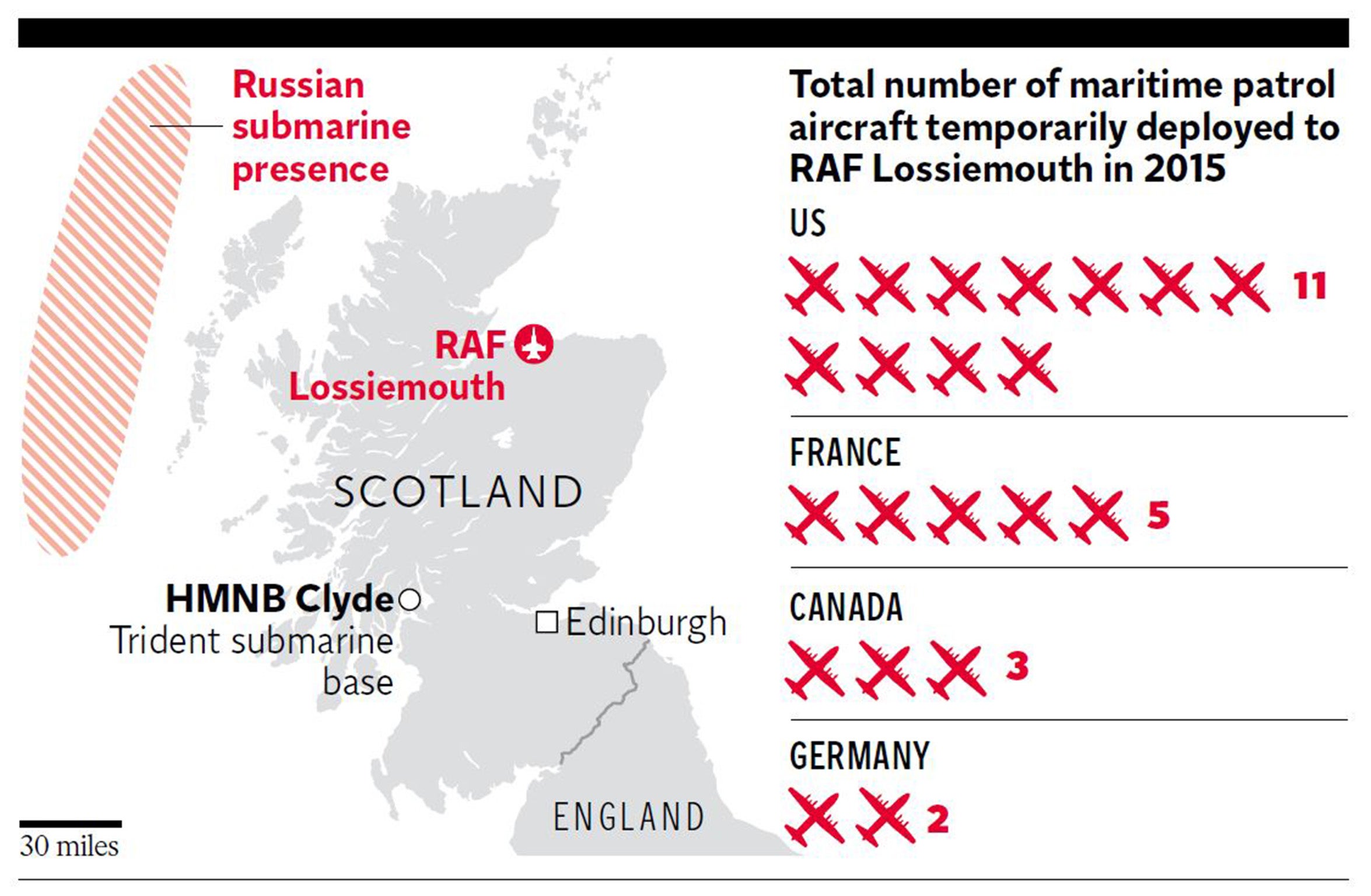Royal Navy relied on Nato to protect British waters 20 times in 2015
Exclusive: The MoD has been regularly forced to call in Nato aircraft to track suspected submarines

Your support helps us to tell the story
From reproductive rights to climate change to Big Tech, The Independent is on the ground when the story is developing. Whether it's investigating the financials of Elon Musk's pro-Trump PAC or producing our latest documentary, 'The A Word', which shines a light on the American women fighting for reproductive rights, we know how important it is to parse out the facts from the messaging.
At such a critical moment in US history, we need reporters on the ground. Your donation allows us to keep sending journalists to speak to both sides of the story.
The Independent is trusted by Americans across the entire political spectrum. And unlike many other quality news outlets, we choose not to lock Americans out of our reporting and analysis with paywalls. We believe quality journalism should be available to everyone, paid for by those who can afford it.
Your support makes all the difference.Britain had to rely on the US, Canada, France and Germany aircraft to protect its territorial waters more than 20 times last year, with the Royal Navy’s reliance on its Nato allies far greater than previously thought.
The Royal Navy no longer possess maritime patrol aircraft (MPA) designed to track suspected submarines off British waters and the Ministry of Defence has regularly been forced to call in Nato aircraft in the last two years.
During one search as many as four allied patrol planes flew to Scotland and operated out of RAF Lossiemouth, amid fears that Russian submarines were attempting to track Britain’s nuclear deterrent by locating the Trident-carrying Vanguard submarines.
Defence experts say Russian submarine activity off Britain is returning toward Cold War levels. The revelation that Britain has had to repeatedly seek Nato assistant will embarrass Ministry of Defence officials, after they controversially scrapped Britain’s Nimrod patrol aircraft in 2010 as a cost-saving measure.
Emily Thornberry, shadow secretary of state for defence, who obtained the information, told the Independent that the Government’s decision to “cut up Nimrod for scrap” had left Britain reliant on support from its Nato allies.

She said: “They will not be replaced for at least another three years, during which time we will be forced to continue to rely on our allies for this vital capability.”
The MoD has previously insisted the UK was able protect Britain’s nuclear deterrent with other military assets, but in November it was announced by Downing Street, in an embarrassing U-Turn, that Britain would purchase a new fleet of Boeing P-8 Poseidon to fill the gap. However these new aircraft will not enter service until 2020 and defence experts have been quick to point out that they are not compatible with RAF mid-air refuelling aircraft, drastically reducing their range.
Brendan O’Hara MP, SNP defence spokesman, said: “For an island nation not to have a fleet of Maritime Patrol Aircraft is totally ludicrous, not least because of the on-going security situation in the world and concerns over submarine incursions into our waters.”
The scale of the assistance offered to the Royal Navy by Britain’s Nato allies has surprised some defence analysts. The US deployed 11 maritime patrol aircraft in 2015, while other NATO allies, including Canada, France and Germany, had deployed 10 aircraft between them.
Lord Sir Alan West, a former First Sea Lord and former Labour security minister, said it was a “national disgrace” that Britain did not have its own maritime patrol fleet and that is was clear that Russia was becoming increasingly assertive and would “love” to be able to track one of Britain’s four Vanguard nuclear deterrent submarines.
He added that pre-planned anti-submarine exercises would contribute to some of the total, but the “extra deployments” come at a time of increased Russian “submarine activity” off western Scotland.
Peter Roberts, a senior research fellow in sea power at the Royal United Services Institute, said the figures followed a “resurgence of Russian submarine activity” off British coasts. He said: “It serves to underscore the need to fast-track the arrival of the UK¹s own MPA, announced in the SDSR, so that as a nation we do not have to be dependent on others.”
He also warned that as Nato carries out plans to re-open a Cold War anti-submarine base in Iceland and contribute to policing the refugee crisis in the Mediterranean, there “may be less support available to the UK” to cover the gap until the arrival of the RAF’s fleet of P8 aircraft.
An MOD spokesperson said: “The Nimrod programme was scrapped because it was 11 years late, £800m over budget, and no planes had been delivered. We are buying planes that work and are providing maritime surveillance by working closely with our allies until they arrive. The future of Defence in Scotland is bright; by 2020 Scotland will be home to all of the Royal Navy’s submarines, one of the Army’s engagement and resilience Infantry Brigades, one of three RAF fast jet main operating bases and the new P8 Poseidon Maritime Patrol aircraft.”
Join our commenting forum
Join thought-provoking conversations, follow other Independent readers and see their replies
Comments